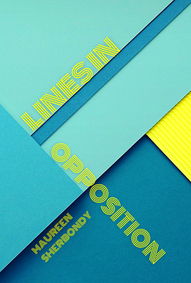Unsolicited Press
|
If you could cook dinner for any author, dead or alive, who would it be? What would you make? T. S. Eliot. I would make a roast chicken with gravy, mashed potatoes, and asparagus. What scares you the most about the writing process? How do you combat your fears? That I will run out of interesting things to write about. I combat my fears by reading work by other writers. I also spend a lot of time listening to the world around me and paying attention. Who is your biggest literary crush, author or character? F. Scott Fitzgerald What books are on your nightstand? Greasy Lake (T.C. Boyle), The Immortalists (Chloe Benjamin), By the Wayside (Anne Leigh Parrish). I carry around books by Robert Bly and John Ashbery for poetry inspiration. Favorite punctuation mark? Why? : I like lists. What book were you supposed to read in high school, but never did? I was an obedient student. I read every single assigned book. And I loved to read. What inanimate object would you thank in your acknowledgements? My coffee pot. If you could write an inspirational quote on the mirrors of aspiring writers, what would you write? Don’t give up. Only writers who give up never get published. Does writing energize or exhaust you? Writing energizes me and keeps me balanced. What are common traps for aspiring writers? Trying to chase trends. Trying to write like the masters. What is your writing Kryptonite? A negative political climate. Have you ever gotten reader’s block? No. I have a very active imagination. Do you think someone could be a writer if they don’t feel emotions strongly? Yes, but their work might be terrible and distant. What other authors are you friends with, and how do they help you become a better writer? Sharon Kurtzman, Jacob Appel, Therese Fowler, Elaine Orr, Crystal Simone Smith, Diane Chamberlain, Barry Peters. Yes, they nourish me as a writer. Do you want each book to stand on its own, or are you trying to build a body of work with connections between each book? Some of my books work together. Some stand alone. How did publishing your first book change your process of writing? Not at all, but I took myself more seriously as a writer. What was the best money you ever spent as a writer? Buying more books and attending writers’ conferences What authors did you dislike at first but grew into? I like all authors. What was an early experience where you learned that language had power? My first words to my mother: “Let me do it myself” What’s your favorite under-appreciated novel? This Side of Paradise. Gatsby gets all the attention. As a writer, what would you choose as your mascot/avatar/spirit animal? A horse or a frog. What do you owe the real people upon whom you base your characters? I make my characters up. What does literary success look like to you? I write one new poem or story a week that I am pleased with. What’s the best way to market your books? I give readings, appear on NPR, and teach workshops. What’s the most difficult thing about writing characters from the opposite sex? I do better writing characters from the opposite sex because I have been surrounded by brothers and sons my whole life. I have much male energy. What did you edit out of this book?” I deleted a few poems that felt weaker. If you didn’t write, what would you do for work? I teach full-time. I sold workers’ compensation before. I think I would study rocks.  Maureen Sherbondy is the author of LINES IN OPPOSITION, a poetry collection. In Lines in Opposition, Sherbondy explores our need to set limits in times of conflict and confusion. These poems of defiance range from the artistic to the political to the familial, from Basho to Godot, Gretel to Ashbery, the Rockettes to Bubble Yum. At times wry and whimsical, at other times acutely serious, Sherbondy's poems testify to the importance of knowing when and how to draw the line. Comments are closed.
|
Popular Topics
All
We Support Indie Bookshops |
